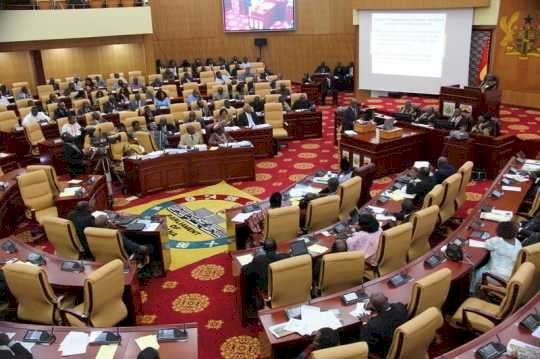Ghana Parliament passes Corporate Insolvency Bill
MPs say it is important that Ghana has effective insolvency laws and institutions are established to him prove the quality of legal regime for corporate bodies and administration

The parliament of Ghana has passed the Corporate Insolvency Bill, 2019 to provide a framework for the regulation of insolvency practitioners and also facilitate access to timely, efficient and impartial insolvency proceedings.
The Act will promote efficient closure and transfer of assets of businesses which are no longer viable, and a proper winding up of businesses where the members for other reasons, decide to cease operations.
The Act is also expected to reduce the burden of insolvency through potentially higher and equitable distribution of assets of failed companies to creditors, as well as permit insolvency practitioners to accept appointment as liquidators of insolvent companies.
READ ALSO:
Prez Akufo-Addo and Family Tests Negative for Coronavirus
The passage of the Bill came after it had undergone intensive amendments at the Consideration Stage following its first reading before the House on Wednesday, March 27, 2019.
The green light given the Bill followed the approval by the House on Wednesday, April 1, 2020, after agreeing that most companies faced serious financial problems and also that most financial institutions carried huge non-performing loan portfolios.
Prior to the passage of the Bill, the Majority Leader and MP for Suame, Osei Kyei-Mensah-Bonsu, moved the motion for it to be read the third time and it was seconded by the Minority Leader and the Member for Tamale South Constituency, Haruna Iddrisu.
The Majority Leader said in Ghana it is imperative that effective insolvency laws and institutions are established to help improve the quality of legal regime for corporate bodies and administration when they become solvent.
The Bill will be forwarded to President Nana Addo Dankwa Akufo-Addo who is expected to give the Presidential Assent.






































